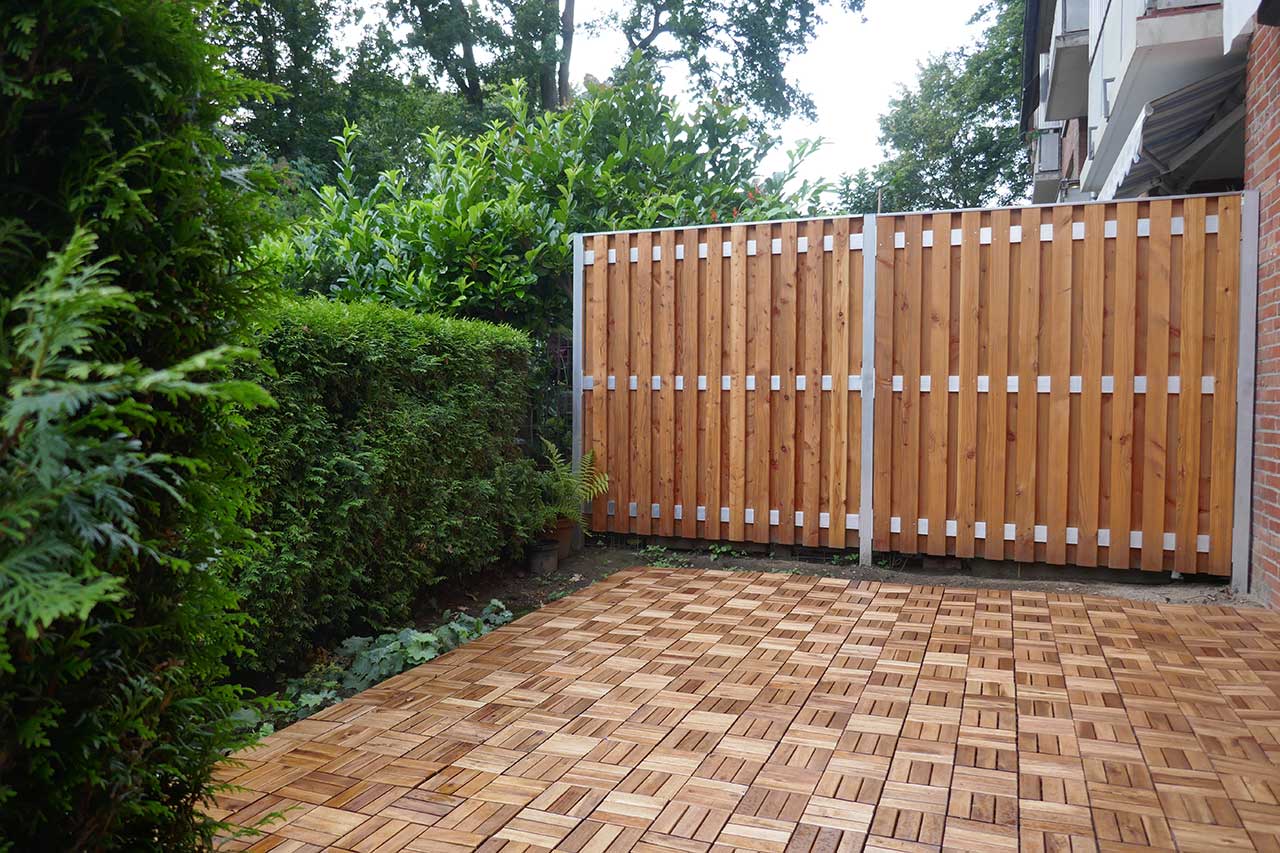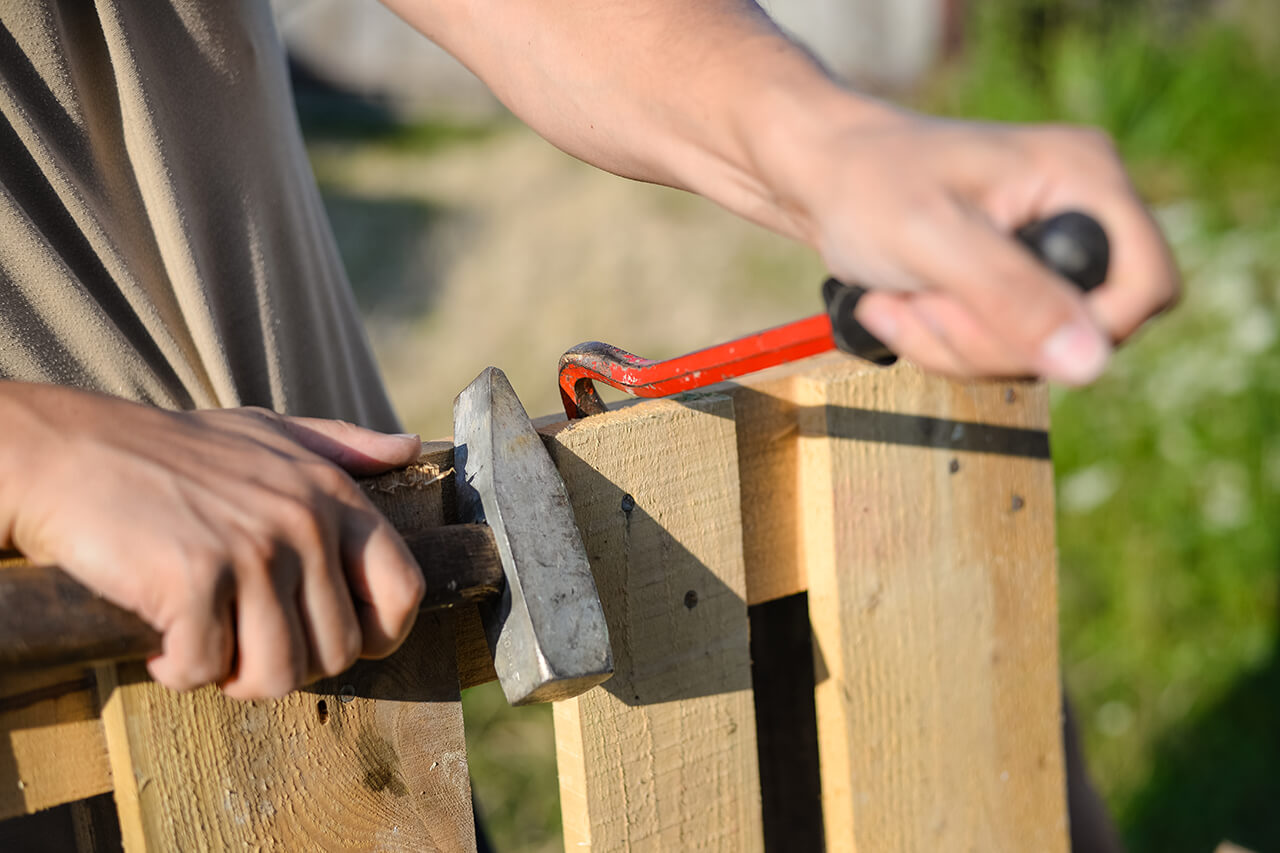How Much Does an Electric Fence Cost in 2025?


Highlights
An electric fence costs between $1,027 and $1,647 with an average cost of $1,337, including labor and materials.
The total length of your electric fence is the biggest determining cost factor at about $1.20 per linear foot.
Budget for site preparation, like clearing brush and addressing difficult terrain, as part of your overall cost estimate.
Installing an invisible electric fence costs $2 to $7 per linear foot, and it is primarily meant to contain dogs and livestock.
Installing an electric fence costs around $1,337 on average, with most homeowners paying between $1,027 and $1,647. While a simple, low-end electric fence costs as little as $800, a high-end fence covering a wider area can cost $2,000 or more. Important electric fence cost factors include its length, how many strands of wire it uses, and the complexity of the fence installation.
Electric Fence Cost Factors
The factors that influence the cost of an electric fence include the price of labor and materials, along with a few less obvious ones. The accessibility of the fence location can add to labor costs, along with the expense of clearing brush or trees in its path.
Cost per Acre
The acreage of a yard determines its perimeter and the linear length and width of the fence. A square one-acre invisible electric fence that requires about 830 feet of fencing typically costs around $1,000 for a normal installation with mid-grade wire. Surrounding more acreage costs more in total but typically costs less per acre.
| Acres | Average Cost |
|---|---|
| 1 | $1,000 |
| 2 | $1,400 |
| 3 | $1,700 |
| 4 | $2,000 |
| 5 | $2,200 |
| 10 | $3,100 |
Cost per Linear Foot
The average cost to fence a yard with electric fencing, including labor and materials, is $1.20 per linear foot, ranging from $0.35 to $2 per linear foot. For context, a barbed wire fence costs $1 to $8 per linear foot to install, while a robust chain link fence costs $3 to $20 per linear foot to install. An electric fence relies less on physical containment and more on the electric charge, so the fence material doesn’t have to be as strong or thick.
Remember that these estimated costs can vary depending on the terrain type and the number and quality of strands of wire used to construct the fence.
| Linear Feet | Average Cost |
|---|---|
| 500 | $600 |
| 1,000 | $1,200 |
| 1,500 | $1,800 |
| 2,000 | $2,350 |
| 3,000 | $3,540 |
Labor
Most local fence companies base their installation fees on the length of the fence. Expect to pay between $0.12 and $0.20 per linear foot for labor alone, depending on the terrain and the number of wires in the fence. Based on that rate, the labor cost for a one-square-acre fence with a perimeter of about 830 feet would be between $100 and $166.
Permits
Municipalities have different regulations when it comes to installing an electric fence. While some may require the property owners to obtain a permit, others may not. If you need one, getting a permit costs as much as $500 to $3,000.
Generally, most cities do not allow homeowners to erect an electric fence in a residential area. Electric fences are typically only permitted in rural areas to enclose livestock or keep wild animals out.
Accessibility
Rugged terrain can make transporting materials, equipment, and supplies to the fence location more difficult, extending the time it takes to complete the fence installation project and increasing the overall price. A fence that might cost $1 per linear foot to install for materials and labor can end up costing $2 per linear foot or more if the fence line is difficult to access.
Prep Work
Before installing the electric fence, the fence line needs to be cleared of any brush or trees. Additional clearing may also be required to allow the equipment necessary for the installation to access the fence line. The cost to remove trees and shrubs can range from $450 to $1,440, depending on the job size.
Number and Type of Strands
In addition to the total length, the cost of an electric fence also depends on the number and type of strands of wire the fence has. Electric fences have between one and 11 wire strands that range from thin wire to high tensile steel.
Three wires of electric fencing are typically suitable for most livestock, including cattle, horses, and hogs. The spacing and the height of the wires will be different depending on the type of animal. Even non-electrified livestock fencing costs $1 to $10 per linear foot. If you want to create a taller fence with narrower gaps that can keep out wild predators or deer, you will need more wires, increasing your overall electric fence cost.
Other factors that can impact the cost of an electric fence include the distance between the posts and whether the fence is temporary or permanent. These can all directly affect the total cost of materials.
Landscaping Repairs
Sometimes, basic prep work is not enough to ready an area for an electric fence installation. You must repair deep ruts, uneven terrain, and other severe damage before the fence can be installed. You may also choose to update the area around the fence installation site for aesthetic purposes. In that case, landscape installation costs anywhere from $1,250 to $6,300, depending on the scope of the project and the type of landscaping you prefer.
Ongoing Maintenance
Maintaining an electric fence may result in several recurring expenses that property owners should budget for on an annual basis. Ongoing maintenance costs range from $100 to $500 per year, depending on the electric fence’s length, terrain complexity, and environmental conditions.
Check for and replace worn insulators and battery-powered chargers, as applicable. Regular maintenance of overgrowth and vegetation around the fence line helps prevent future problems, as does periodic electrical conductivity testing.
Professional maintenance checks can cost $75 to $150 per visit. If there is damage, fence repairs cost $300 to $940 in most cases, though fixing extensive damage can cost up to $2,300 or more. Depending on the cost of repairs, consider replacing sections of the electric fence altogether.
Electric Fence Cost by Type
Not all types of electric fences cost the same. An invisible electric fence is more affordable than an above-ground electric fence. The cost of electric fences also depends on how they are powered.
Invisible Electric Fence
Invisible electric fencing is designed to keep animals in a contained area by administering an electric shock via a collar when the animal attempts to cross the invisible fence line. It is not used to keep wildlife off your property.
This type of electric fence is typically less expensive than a physical wood or chain link fence. Expect to pay $2 to $7 per linear foot or $1,600 to $2,000 per acre to install an underground invisible electric fence. A local dog fence installation company may charge between $800 and $2,800 for an average fence that’s 400 linear feet long.
An invisible fence is buried underground, so the cost to repair an invisible fence is usually less than the cost to fix an above-ground electric fence.
| Invisible Fence Length (Linear Ft.) | Average Cost Range |
|---|---|
| 100 | $200–$700 |
| 200 | $400–$1,400 |
| 300 | $600–$2,100 |
| 400 | $800–$2,800 |
| 500 | $1,000–$3,500 |
| 1,000 | $2,000–$7,000 |
Editor’s Note About Invisible Electric Fencing
While some owners think electric fences are a good option, others say their dogs have ignored the shock. Some people also have strong feelings about using invisible fences and do not feel they are safe or humane for dogs.
Amelia Weiber, PDT-KA, CCBC, fear-free certified, who runs Caring Behavior Animal Behavior Consulting and sits on the advisory board for Daily Paws, noted that “electric fences can result in behavioral side effects and may not be able to keep a dog safely in the yard, so they should be avoided as a containment option.”
If you still want to consider an invisible electric fence, talk to your veterinarian about your dog. Additionally, some states and counties may not allow this type of fencing, so always check local ordinances.
Above-Ground Electric Fence
Expect to pay between $1,675 and $2,500 for an above-ground electric fence for livestock. As with any other type of fence, the total cost is determined by the size of the fenced area and the choice of materials. The more strands in the fencing and the higher the quality of the wire, the higher the fence cost. The average cost to fence in one square acre runs from $200 to $2,500.
Solar or Battery
If there is no easy way of providing an electrical connection to the electric fence, property owners may opt to use a solar charger to power it. If you plan to use a solar energizer, you'll need to install it in an area that receives full sun all day long.
Most solar chargers can be mounted to a fence post. Solar chargers range in cost from $100 to $500, depending on the length of the fence the charger will power. Alternatively, some fences can also be powered by a 12-volt marine battery, which costs between $30 and $300 and needs to be replaced periodically.
Does Installing an Electric Fence Increase Home Value?
Electric fences may offer a moderate return on investment, with potential value added varying by location and property type. Homes in rural areas with known wildlife problems may appeal more to potential buyers if a professionally installed electric fence is already in place to deter predators and deer from invading the property. Electric fences may also appeal to livestock owners who want to contain their cattle, pigs, or other animals.
Budgeting for Installing an Electric Fence
To help you maximize your budget and minimize costs, consider these money-saving tips when hiring a professional to install an electric fence on your property:
Get at least three detailed estimates from different contractors to compare pricing and services.
Schedule installation during contractor off-peak seasons, typically late fall or winter, for potential discounts.
Combine the electric fence installation with other landscaping or property improvement projects to negotiate a package rate.
Take care of some initial site preparation, like clearing vegetation, to reduce labor costs.
Opt for mid-range materials that balance durability and affordability, avoiding both the cheapest and most expensive options.
Explore different electric fence designs, including the number and type of strands, to find the most cost-effective solution for your needs.
Utilize existing fence posts if possible to reduce new construction costs.
How HomeAdvisor Gets Its Cost Data
No place is more important than your home, which is why HomeAdvisor connects homeowners with local pros to transform their houses into homes they love. To help homeowners prepare for their next project, HomeAdvisor provides readers with accurate cost data and follows strict editorial guidelines. We surveyed thousands of real customers about their project costs to develop the pricing data you see, so you can make the best decisions for you and your home. We pair this data with research from reputable sources, including the U.S. Bureau of Labor Statistics, academic journals, market studies, and interviews with industry experts—all to ensure our prices reflect real-world projects.
Frequently Asked Questions
Most property owners can expect a well-maintained electric fence to have a life expectancy of at least 20 years. Livestock typically learns quickly to avoid contact with an electric fence but encounters with nearby predators and wildlife can vary. Harsh weather can add to wear and tear, reducing the lifespan of an electric fence.
For many property owners, an electric fence is worth it because it requires fewer materials and is comparatively easier to install than other types of fencing. Solid wood or chain link fences cost more and often require more upkeep. For property owners eager for a quick, budget-friendly solution, an electric fence may be a viable option.
Like all other types of infrastructure, electric fences have weaknesses. They are hazardous to people and animals if not installed and maintained properly, possibly causing injury or even death in some cases. Electric fences require constant power, so power outages or interruptions can effectively disable them. Lightning strikes and electromagnetic interference can also be causes of concern.





- Aluminum or Steel Fence - Repair
- Barbed Wire Fence - Install
- Vinyl or PVC Fence - Install
- Aluminum or Steel Fence - Install
- Wrought Iron Fence - Install
- Wood Fence - Install
- Vinyl or PVC Fence - Repair
- Wrought Iron Fence - Repair or Weld
- Gate for Driveway or Security - Install or Replace
- Chain Link Fence - Install
- Chain Link Fence - Repair or Alter



